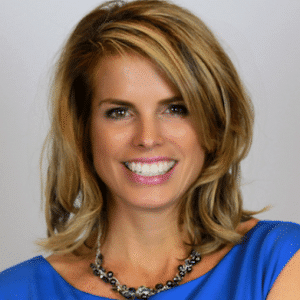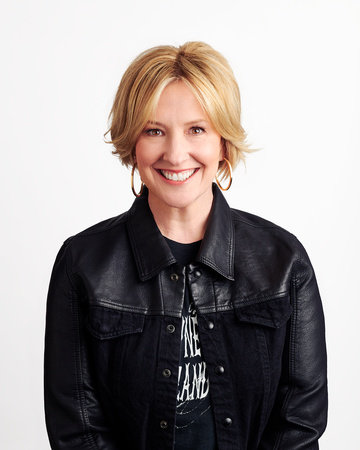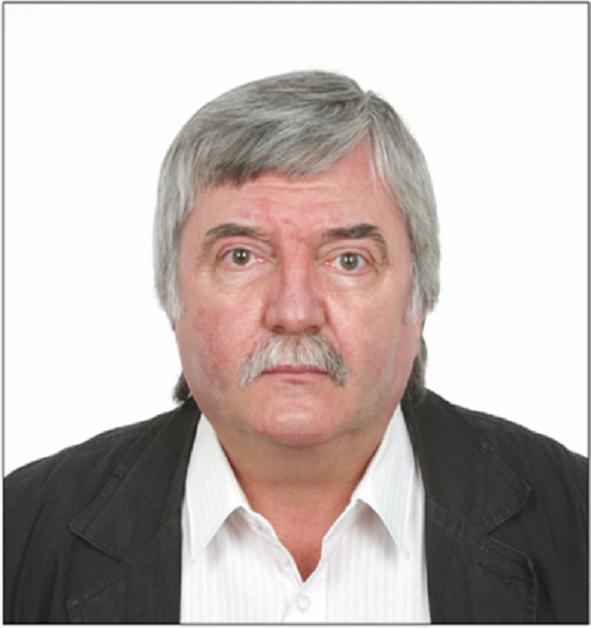Scientific Sessions
Track 1: Depression and Mental Health
Depression is a common mental disorder that causes due to depressed mood, loss of interest or pleasure, feelings of guilt or low self-worth, sleepless ness or appetite, low energy, and poor concentration. It affects any age group of people living with depression is very difficult. Some talking therapies such as cognitive behavioural therapy (CBT), counselling, and psychotherapy work well for people suffering from depression. When the condition is critical anti-depressants are recommended to patients suffering from depression but they may have some side effects. Depression is a mental illness and can be very intense and even life threatening is a depressed person feels suicidal.
Depression Conferences | Mental Health Conferences | Neurology Conferences | Stress Conferences | Psychology Conferences
Anxiety and Depression Association of America, American Psychiatric Association, European Depression Association, American Psychological Association, National Alliance on Mental illness, Mental health Association in Maryland, Society for Mental health Research, American Academy of Child and Adolescent Psychiatry, Australian Clinical Psychology Association
Track 2: Anxiety and its Disorders
Anxiety is an emotion characterised by feelings of feelings of tension, worried thoughts and physical changes like increased blood pressure. Anxiety disorders occur when the reaction is out of proportion than the normal situation symptoms include high blood pressure and nausea. Environmental factors like stress for personal relationships, financial problems, and shortage of oxygen are some of the causes of anxiety. Side effects of medicines, genetics, and brain chemistry are some causes of anxiety.
Track 3: Stress Management and Therapies
Stress management is a broad spectrum of psychotherapies and techniques focussed to control persons stress levels. There are many research strategies for managing stress through proper planning. Many studies have shown that relaxation tools such as progressive muscle relaxation, deep breathing, guided imagery, and clinical hypnosis are helpful for managing stress. Anxiety and irritability are common responses to stress.
Track 4: Suicide and its Prevention
Suicide is that the act of killing yourself, most frequently as a result of depression or different mental disorders. In the US, suicide accounts for concerning two % of all deaths. Rates are highest for men over sixty nine, however are increasing alarmingly in Youngsters aged fifteen to twenty four. Offering help and support, respond quickly in crisis can help to prevent suicides. 90% of people who commits suicide suffer from lot of mental health issues like depression, bipolar disorder, schizophrenia, or alcoholism.
Track 5: Neurobiology of Depression
Depressive disorder is a long term; recurrence is associated with high levels of disability and mortality. It has a neurobiological basis and is associated with functional and structural brain abnormalities. Genetic vulnerability and stress are the main factors that cause and development of a disease. Dysregulation of the hypothalamic-pituitary-adrenal (HPA) axis reduces hippocampal volumes and anterior cortex (PFC) activity in depressed patients and disrupts physiological state inside the neuro-circuit of depression. Antidepressants increase brain-derived neurotrophic, restoring vegetative cell growth and activity and modulate interactions between the neuro-circuit anatomical structures.
Track 6: Neuromodulation Techniques
Deep Brain Stimulation, is one of the latest approved new treatment for tremors and Parkinson’s disease.it includes implantation of mind pace maker which transmits electrical impulses to specific parts of cerebrum, this technique has been successful in clinical trials particularly for the people who are impervious to most different endeavours at treatment, it's an exceedingly obtrusive surgical system that requires direct upkeep, and may not be conceivable or advantageous for a few patients.
The modulation of brain perform via the appliance of weak electrical energy was initial determined directly within the early nineteenth century. Within the past three decades, Trans cranial magnetic stimulation and deep brain stimulation have undergone clinical translation, providing alternatives to medical specialty treatment of neurologic and medicine disorders. Additional development of novel Neuromodulation techniques using ultrasound, micro-scale magnetic fields and ontogenetic is being propelled by a quickly up understanding of the clinical and experimental applications of unnaturally stimulating or depressing brain activity in human health and malady.
Track 7: Specific Phobias and Treatment
Everyone experiences fear from time to time. Specific phobias develop in childhood between the ages of 7 and 11. While ordinary fears cause minor anxiety and can be more easily overcome, specific phobias physically and/or psychologically impair the affected individual to such an overwhelming extent that it is disabling to their daily life. Phobias are five types they are animal phobias, Natural environmental phobias, Blood injection or injury phobias, Situational phobias and other phobias. Mental Health professionals can treat phobias which involve cognitive behaviour therapy and medication or both.
Track 8: Stress and Insomnia
Stress causes insomnia by making it difficult to fall asleep by affecting the quality of your sleep. The effect of stress on sleep duration and quality may be a reflection of how people cope with stress. Stress could be a reaction to danger or weight. Due to pressure we tend to might tend to feel anxious, strained, or tense. The pressure reaction is often physical, as well. Stress triggers a surge of a hormone referred to as adrenaline; this hormone incidentally influences the sensory system of a person. Many health problems caused by stress include depression and anxiety, pain of any kind sleep problems autoimmune disorders digestive problems. A sleeping disorder itself can create changes in inclination and moves in hormones and physiology can cause every medicine problems and a sleeping disorder within the meanwhile.
Track 9: Autism Spectrum Disorder
Autism Spectrum Disorder is a developmental and neurological disorder that begins in childhood and lasts throughout the life people with ASD cannot communicate and interact with other people there is a wide variation in type and severity of person’s symptoms so it is known as Spectrum. Additional Evaluation and General Developmental Screening during Well-Child Check-ups are the two diagnoses in young children which improves behaviour skills and language development. There are many typed of autism spectrum disorders like high function autism, Asperger’s syndrome, Pervasive developmental disorders, Rett syndrome.
Track 10: Sexual Abuse and Substance Use Disorders
Sexual abuse is unwanted sexual intercourse, with perpetrators mistreatment force, creating threats or taking advantage of victims ineffective to allow consent. Most victims and perpetrators grasp one another. Immediate reactions to statutory offense embrace shock, worry or disbelief. Long symptoms embrace anxiety, worry or post-traumatic stress disorder. Excessive intake of alcohol and drugs leads to severe health disorders this is known as substance use disorders. Many people with substance use problem have depression, anxiety, emotional distress, attention deficit disorder, post-traumatic stress disorder, and other mental health problems.
Track 11: Child and Adolescent Mood Disorders
Mental Health professionals recognised mood disorder symptoms in children and adults. They both do not have similar symptoms it is more difficult to diagnose symptoms in children because they cannot able to express their feelings. 70% of females experience depression than males. The most common types of mood disorders are Major depression,
Persistent depressive disorder (dysthymia), Bipolar disorder, Disruptive mood dysregulation disorder, premenstrual dysmorphic disorder, Mood disorder due to a general medical condition, Substance-induced mood disorder.
Track 12: Schizophrenia and Bipolar Disorder
Schizophrenia and Bipolar disorders are psychotic disorders. Schizophrenia is characterised by symptoms like hallucinations and delusions. They lack the ability to think, symptoms may vary from person to person mild to moderate. Psychotic symptoms are seen during mania and depression in patients with bipolar disorder. Psychotropic drugs are used to treat psychotic disorders second generation antipsychotics are effectively helpful than older first generation antipsychotics.
Track 13: Yoga and Holistic Health
We can create a balanced lifestyle with yoga. Lot of people became health conscious to maintain their mental and spiritual fitness. One way that most people are able to succeed in balancing physical, mental, and spiritual needs is through yoga. It is a psychical fitness exercise. Holistic drugs, or “holistic health”, may be a belief that each the physical and mental aspects of life. Holistic health is sometimes related to the subject of other drugs; however it's turning into additional thought during this day and age.
Track 14: Psychopharmacology
Psychopharmacology is the study of drugs that which shows their effect on mood, sensation, thinking, and behaviour. It involves the study of drugs and psychiatric illness, neuroimaging, pharmacogenetics, cognitive science, and biomarkers are also involved in this study. Antidepressants and stimulants are wide range of classes which researchers are interested in.
Track 15: Mindfulness for Mental Wellbeing
Mental health foundation organise mental health awareness week every year and the theme is mindfulness which is an important part in mental wellbeing. Practising of mindfulness helps on to become emotionally stronger, reduce stress increases self-awareness. It helps the people to change the way they think it is a treatment for people with mental health problems. An open and accepting attitude and Awareness are the two components which help to bring relief.
Track 16: Health and Safety in Depression
A lifetime prevalence of 16% to 20% is thought to be the range for major depressive disorder. In Australia, 3.1% of men and 5.1% of women experience an illness at any given time in a year. Pharmacological, psychological, and physical therapy are currently used as treatments. One of the pharmacological types that is most frequently prescribed is the antidepressant, and usage of these medications is on the rise. The panorama of providing pharmaceuticals includes adverse effects; therefore management of safety issues must be a core component of practicing. An appropriate diagnostic workup should be part of the treatment of depression, especially to rule out organic or self-limiting causes. Prior to choosing a course of treatment, it is important to consider each patient's unique risk factors, medical history, and therapeutic preferences.
Market Analysis
In 2023, depression is planned to congregate globally. Welcome to the 10th World Congress on Depression and Anxiety, which will be held in Amsterdam, Netherlands on November 23-24, 2023.
The term "depression" is frequently used to characterise someone who is depressed. Depression is a dangerous condition that is frequently referred to as a "black hole of hopelessness and helplessness," despite the fact that the term is sometimes used carelessly. Although a chemical imbalance in the brain is thought to be the primary cause of depression, it can also have deeper and more intricate causes. Depression has no "scientific cause." Anyone can experience depression, and the circumstances that lead to depression differ greatly from person to person.
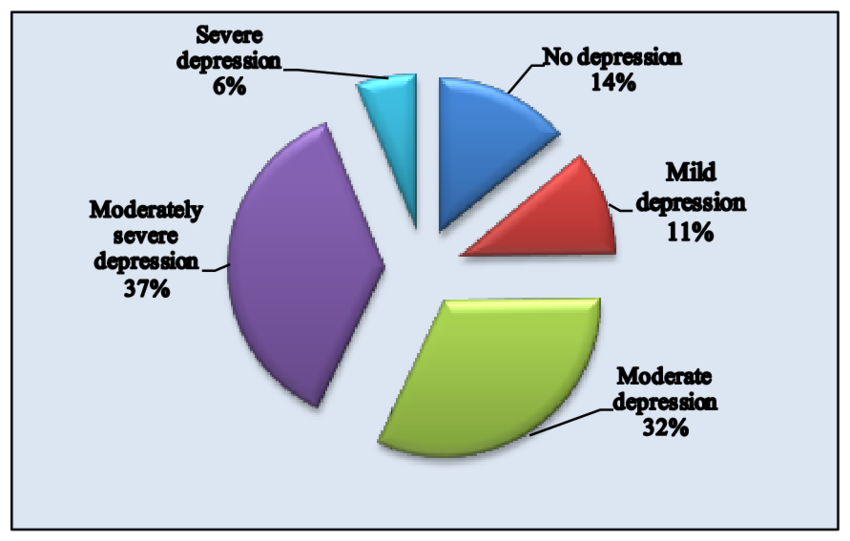
Depression usually spurs due to a combination of several things, such as:
Family History: genetics, depression can run in the family for generations
Trauma and stress include situations and occurrences including financial difficulties, relationship breakups, the loss of a loved one, major life or lifestyle changes like starting a new career, finishing school, getting engaged, or becoming pregnant.
Pessimistic Personality: having low-self esteem or having a negative outlook
Physical Condition: Due to physical infirmity and stress, issues like significant medical disorders including heart disease, cancer, and HIV may arise. Depression is known to compromise the immune system, which makes it difficult to tolerate physical discomfort.
Psychological Disorders: anxiety, eating disorders, schizophrenia and substance abuse can also lead to depression
other mood-altering conditions like dysthymia, seasonal affective disorder, post-partum depression, and bipolar disorder can also lead to depression.
Behavioural Rehabilitation Market is in a growth phase:
The market for depression treatments is anticipated to surpass US$ 10.1 billion in 2022 and grow at a CAGR of 5.2% to US$ 16.8 billion by 2032. A recent analysis found that the pharmaceutical industry leads all other product categories and will account for almost 99.4% of global demand in 2021. The market for treating depression will account for 7.6% of the $128.2 billion global market for behavioural health in 2021.
The prevalence of mental health illnesses and ailments is rising worldwide, according to the World Health Organization (WHO). In the past ten years, there has been a 13% rise in mental health issues and other depressive diseases. The U.S. Department of Health and Human Services (HHS) estimates that in 2020, a major depressive episode (MDE) affected 17.0% (or 4.1 million individuals) of teenagers between the ages of 12 and 17 and severely impaired MDE affected 12% (or 2.9 million people). The prevalence of mental health issues is rising as a result of a number of reasons, including demographic changes, environmental conditions, and rising mental stress. The market for treating depression is growing better as a result of this.
Companies in the global depression treatment market are actively looking to enhance their position through mergers with both existing and up-and-coming industry participants, according to Future Market Insights (FMI). For instance, Mylan and Upjohn merged to establish Vitrics Company in November 2020.
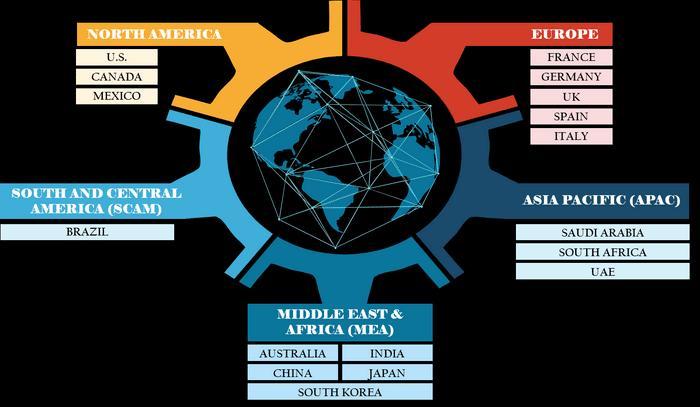
Physical disorders are more prevalent in patients with severe mental illness than in the general population. Even in affluent nations, the screening assessment of physical health components is still relatively lacking, despite the fact that excess mortality and dejection is mainly caused by modifiable lifestyle risk. Additionally, individual patient providers, treatments, and system characteristics place restrictions on our understanding of how to treat human physical disorders. By shifting their focus from providing clinical psychiatric care to the management and treatment of critical physical parameters, psychiatrists can significantly contribute to the improvement of the physical health of disorder patients. Actions are difficult to implement at the system level. Particularly for poorer nations although at the individual level, the problem of optional medical care in this population can already be improved by the treating practitioner doing even modest and very basic absorb and treatment activities. Implementing monitoring and treatment recommendations will significantly improve the outcomes for physical health. Future psychiatrists will support and educate persons with serious mental disease about their lifestyle choices, such as smoking, drinking, eating poorly, and not exercising. A certain improvement in the medical and related psychiatric health outcomes of individuals with the severe mental illness will result from the adoption of the council described in the study around the world.
Sales Analysis of Depression Treatment from 2012 To 2021 Vs Market Outlook For 2022 To 2030:
According to FMI, the rising frequency of depression and anxiety disorders caused overall sales of depression treatment to grow at a CAGR of 3.4% from 2012 to 2021. The rising demand for antidepressants and treatments for mental illnesses during the anticipated period also contributes to growth (2022-2030). It is crucial that people receive therapy for depression on time because medical visits for depression therapies can take a long time. Initiatives must be taken to guarantee that patients with persistent physical problems receive top-notch mental healthcare in primary care if competing demands continue to hinder depression treatment.
The American Psychological Association (APA) conducted a poll in 2021 and discovered that as a result of the pandemic, mental health problems are continuing to rise. In comparison to the previous year, there has also been a notable rise in the demand for therapies for depression and anxiety. Additionally, new research on antidepressants for the treatment of depression is ongoing across a variety of pharmacological classes, including selective serotonin reuptake inhibitors (SSRIs), Antipsychotic medications, SNRIs (selective norepinephrine reuptake inhibitors), and others.
What Are The Key Opportunities For Depression Treatment Market?
The financing for mental health services, as well as the treatment of mental disease and depression disorders, is being increased by governments.
Some of the drivers driving the market are the need for high-quality therapies, affordable healthcare policies, financing from government agencies, and healthcare organisation interventions for the treatment of mental health illnesses.
Additionally, as they enhance brain glucose metabolism and reduce the likelihood of mental illnesses, improvements in brain and mental fitness are opening up new pathways for the treatment of depression.
Due to the rising frequency of depressive disorders in the area, the U.S., which held the majority of the market share in 2021 with 92.8%, is anticipated to continue growing at a similar rate over the course of the forecast. 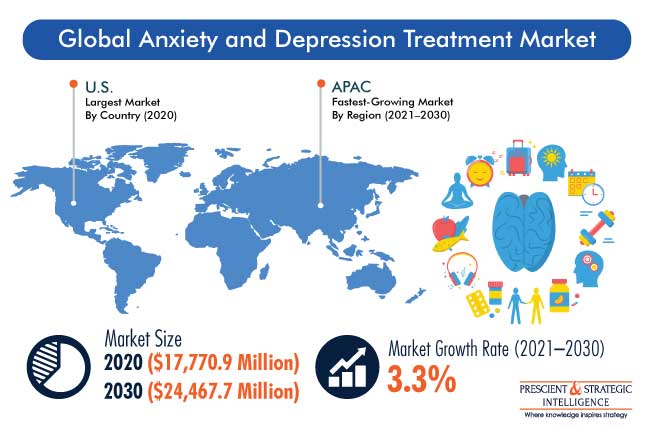
What Are The Factors Restraining Demand For Depression Treatment?
The treatment of individuals with depression may suffer as a result of the lack of such highly qualified specialists and their scarcity. These elements may have an impact on service quality, slowing the market's expansion for depression therapy.
Additionally, the introduction of generic versions of medications used to treat depression will likely spur a significant expansion of the overall market, giving consumers access to a wide range of affordable prescription options. Pharmaceutical corporations will no longer be protected by patents, exposing some drugs to generic competition for the first time. This increases competition for the businesses that created the original products. Therefore, issues with patent expiry will impede market expansion for depression treatments.
For instance, the patent for the antidepressant and anxiety medication Lexapro ended on March 14, 2012. Additionally, depression and other mental illnesses are stigmatised in society. Patients who self-stigmatize experience feelings of shame and isolation, which can prevent them from receiving appropriate therapy. Additionally, it could result in somatization. Those who have never encountered it may mistakenly see difficulty in understanding as a sign of weakness
|
Data Points
|
Market Insights
|
|
Depression Treatment Market Value 2021
|
US$ 9.7 Bn
|
|
Market Value 2022
|
US$ 10.1 Bn
|
|
Market Value 2030
|
US$ 16.8 Bn
|
|
CAGR 2022-2032
|
5.20%
|
|
Market Share of Top 5 Countries
|
58.90%
|
|
|
Signs and symptoms of depression often go beyond feeling sad or down. Below is a list of other symptoms that may be a sign of depression:
• Lack of energy or inability to focus
• Irritability for no apparent reason
• Feeling depressed or blue for longer than two weeks and having these feelings interfere with your day-to-day activities
• Self-harming, believing that nothing will improve or change;
• Loss of interest in once-enjoyed hobbies or activities;
• Changes in appetite that result in significant weight loss or gain;
• Changes in sleeping habits;
• Withdrawal from social activities;
• Feeling restless or "slowed down";
• Lack of motivation or significant changes in motivation;
• Reduced ability to make decisions.
Country-Wise insights :
What Makes the U.S. the Largest Market for Depression Treatment?
“Prevalence of Major Depressive Episodes (MDE) in the U.S. will Create Growth Prospects for Depression Treatment Market”
Due to the rising frequency of depressive disorders in the area, the U.S., which held the majority of the market share in 2021 with 92.8%, is anticipated to continue growing at a similar rate over the course of the forecast period. The U.S. Department of Health and Human Services (HHS) estimates that in 2020, 17% (or roughly 4.1 million people) of adolescents between the ages of 12 and 17 experienced a major depressive episode (MDE), and 12% (or roughly 2.9 million people) experienced a major depressive episode with severe impairment. Additionally, the availability of multiple branded formulations and federal regulations on drug introductions has a substantial impact on market dynamics.
Why Germany is considered a Lucrative Market for Depression Treatment in Europe?
“Increasing Number of Depressive Disorders in Germany will drive the Demand for Depression Treatment”
Germany is anticipated to display a lucrative CAGR of 5.3% in the Europe depression treatment market over the course of the forecast year, according to FMI (2022-2032). According to the Institute for Health Metrics and Evaluation, depression disorders are prevalent in Germany at a rate of 3.7%. Therefore, throughout the forecast period, the market expansion will be aided by the increased prevalence of depressive illnesses in Germany.
What Makes China an Emerging Market for Depression Treatment?
“Improved Medical Infrastructure in China to Augment the Growth in Depression Treatment Market”
China's market share in the East Asian depression treatment market was 43.4% in 2021, and it is anticipated to grow at a CAGR of 4.8% over the course of the forecast period. The market is anticipated to grow in the next years as a result of rising healthcare costs and quickly advancing medical infrastructure.
According to the Global Health Expenditure Database, more than 5,112 yuan will be spent on healthcare per person in 2020, up from over 4,669 yuan in 2019.
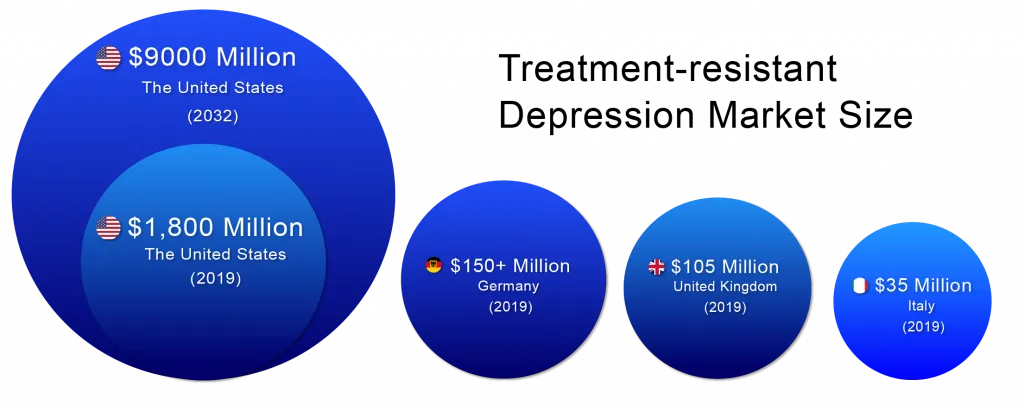
Related Societies
Asia-Pacific:
-
Psychiatrists of Association of Nepal
-
Philippine Psychiatric Association Portuguese
-
Romanian Psychiatric Association
-
Russian Society of Psychiatrists
-
Neurological Society of India
For psychiatrists, doctors, healthcare workers, academics, and students, Depression 2023 is a premier forum. We are incredibly honoured to have eminent academics inspire, educate, and innovate our attendees. We cordially invite everyone to look into opportunities with the continent's population as a whole exchange idea and build partnerships with foreign clientele.
The intended audience will arrive from the many branches of psychiatry and neurology listed in the event's features. Provocative Keynote presentations, Oral and Poster introductions, and a large global membership are all envisioned for Depression 2023. This includes a wide range of critically important sessions on everything from foundational research to the most recent developments in psychiatry and neurology.
Due in significant part to the rising prevalence of depression and anxiety disorders in this region, North America dominated the market in 2015. The vertical growth is also predicted to be boosted by favourable government policies, the availability of various branded formulations, and better awareness levels.
Benefits of attending:
· Networking Opportunities, Grow Your Professional Network
· Build Your Knowledge Base
· Expand Your Resources
· Meet Experts & Influencers Face to Face
· Learning In a New Space
Medical experts have been compelled to create cutting-edge treatments for sustaining mental health as a result of the alarmingly high frequency of anxiety and sadness worldwide. For instance, the US Food and Drug Administration (FDA) has licenced Janssen Care Path's Es-ketamine a ketamine nasal spray formulation known as SPRAVATO, as a treatment for mood-related illnesses like post-traumatic stress disorder (PTSD), anxiety problems, and depression. The effectiveness of magic mushrooms in lessening the intensity of melancholy moods in humans is also being studied at the University of Toronto's centre for Psychedelic Studies. According to research conducted at the University of Utah, regular yoga practise can help a person better control their stress reaction, which will lower their anxiety levels. Thus, growing proof of the effectiveness of anxiety disorders and depression treatment would hasten the market's long-term expansion.
Past Conference Report
WCDA 2019 Report:
7th world Conference on Depression & Anxiety was organized during November 14-15, 2019 at Holiday in London, UK with the support and contribution of the Organizing Committee Members.
Firstly we must thank you for trusting us and participating in Depression & Anxiety 2019, a global platform to discuss various important aspects of Depression & Anxiety.
There are infinite reasons to extend our gratitude to you for making the Depression & Anxiety 2019 outstanding conference. We couldn't have done it without your continuous support and believe towards our organization, which mutually made to achieve Depression & Anxiety 2019 a new heights in the field of Psychiatry.
The conference was marked with the attendance of young and brilliant researchers, business delegates and talented student communities representing more than 15 countries, who have driven this event into the path of success.
The conference was organized around the theme “Leading Innovations and Approaches towards Anxiety and Depression”. The event implanted a firm relation of upcoming strategies in the field of Novel approaches and Developments in Psychiatric disorders and management of depression, anxiety, and stress with the scientific community. The conceptual and applicable knowledge shared, will also foster organizational collaborations to nurture scientific accelerations.
The conference proceedings were carried out through various Scientific-sessions and plenary lectures, of which the following Speakers were highlighted as Keynote speakers:
David Truswell, Some fresh thinking Consultancy, UK
Torao Ishida, Suzuka University of Medical Science, Japan
Tores Theorell, Stockholm University, Sweden
Denny Meyer, Swinburne University of Technology, Australia
Angela Neal Barnett, Kent State University, USA
The conference witnessed an amalgamation of peerless speeches, Keynote speakers, well-known researchers and delegates who enlightened the crowd with their enviable research knowledge and on various alluring topics related to the field of Stress management and various Psychiatric disorders by their fabulous presentations at the podium of Depression & Anxiety 2019.
Conference series LLC offers its heartfelt appreciation to all the Organizing Committee Members, Chairs and Co-chairs, Speakers, Students, Media Partners, sponsors and Editorial Board Members of Journal of Depression and Anxiety, Journal of Emergency Mental Health and Human Resilience, Journal of Traumatic Stress Disorders & Treatment who supported the conference in every aspect for the awe-inspiring exhibition at the venue.
We are also obliged to various delegate experts, company representatives and other eminent personalities who supported the conference by facilitating active discussion forums. We sincerely thank our Organizing Committee Members.
So as a continuation of Depression & Anxiety 2019, we would like to heartily invite you to our upcoming 10th world Congress on Depression & Anxiety scheduled during November 23-24, 2023 | Amsterdam, Netherlands.
For 2023 we are expanding our focus towards all aspects of Depression & Anxiety and Research findings as treatment methods. Our organizing committee is gearing up for more innovative and explorative sessions to unleash the boundaries of the Depression & Anxiety 2019.
Your expertise and knowledge in the area of Depression & Anxiety 2019 will provide an opportunity to discuss and respond to a series of questions about the status of advanced Stress Management.
We would like to organize this conference with your support to gather all the Stress researchers in a single platform, hope we will be honoured with your support to organize Depression 2023 in a grand level, your support will be the key of success for our next year conference.
We look forward to seeing your benign presence with active contribution and support to make this event successful once more.
Once again it’s our pleasure to welcome you to our upcoming Depression 2023 conference.
